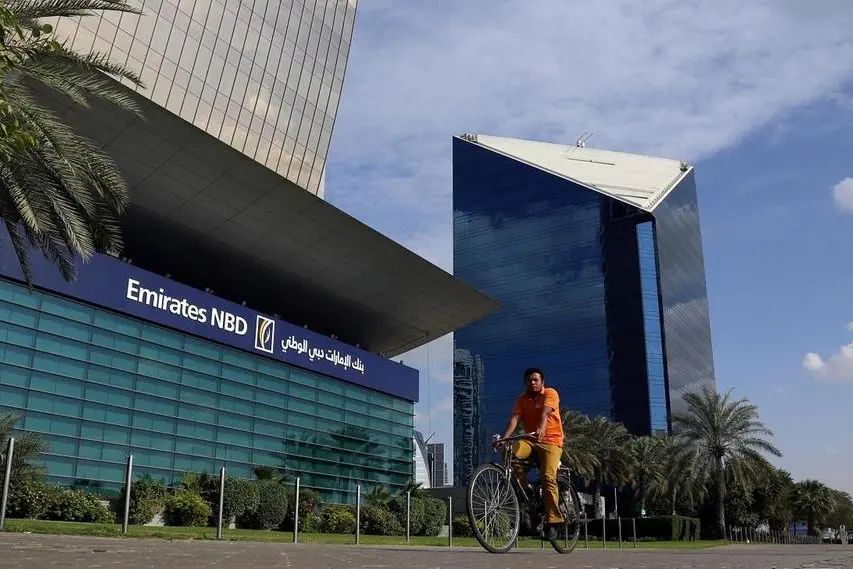PHOTO
BofA Global Research has raised its 2021 expectation for Emirates NBD’s earnings per share (EPS) by 9 percent and its price objective (PO) to 15 dirhams ($4.08) as the lender shows stronger signs of recovery than expected.
It has tagged the Dubai-based bank, the second largest in the UAE by assets ($190 billion), deposits and income, as a preferred name among MENA equities.
“We see Emirates NBD as a key beneficiary of the post pandemic environment. In particular, its exposure to the economic recovery in Dubai, the steepening yield curve (and upside risks to rates from an improving US economic outlook), its well provisioned loan book and robust balance sheet, and its leading digital platform are at the heart of this view,” it said in a note Wednesday.
The lender’s conservative approach to asset quality has seen it become one of the best provisioned in MENA, with stage-3 coverage of c.90 percent (over 200 percent with collateral) and an NPL (nonperforming loan) coverage ratio of 125 percent, the note said.
“With the Dubai economy looking particularly well placed to benefit from a reopening world and the announcement from the Government that the TESS program will be extended to mid-2022, we see the asset quality picture improving for ENBD. As such we see scope for a significant drop in provisioning from H2 2021.”
Earlier this week Emirates NBD reported a Q1 2021 net income of 2.32 billion (+12 percent YoY, +76 percent QoQ). The effort was “31 percent above our forecasts,” BofA said.
“Revenues of 6.16 billion (-10 percent YoY, +25 percent Q-o-Q) were 9 percent ahead of our forecasts. Relative to our expectations, ENBD benefitted from lower than expected operating costs and stronger non-interest income on FVOIC (fair value through other comprehensive income) gains and fees.”
The report said that given the weakness in benchmark rates, by Emirates NBD's core revenue generation was encouraging.
“While EIBOR had fallen almost 200bps, NIMs were more robust (falling just 60bps) reflecting management's actions in reducing funding costs and the impact of the Turkish business. While this did not translate into higher revenues YoY, we believe it gives an indication of what ENBD is cable of generating once the provisioning cycle comes to an end.”
(Writing by Brinda Darasha; editing by Seban Scaria)
Disclaimer: This article is provided for informational purposes only. The content does not provide tax, legal or investment advice or opinion regarding the suitability, value or profitability of any particular security, portfolio or investment strategy. Read our full disclaimer policy here.
© ZAWYA 2021




















